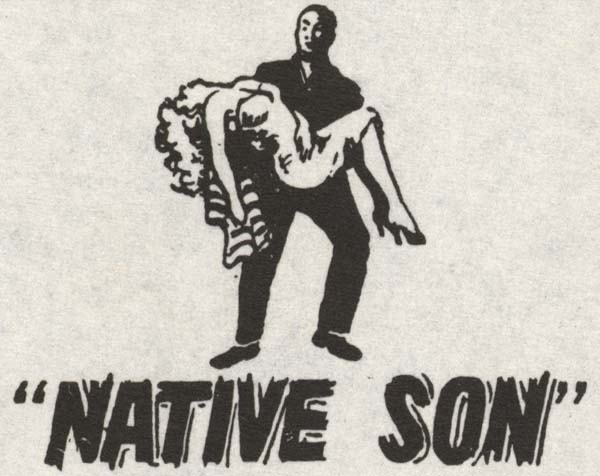Perhaps the essence of white guilt can be summed up by one’s reaction to this novel or one's inability to fully grasp what it means. Published in 1940 (!), Native Son is practically a catalogue of the many forms racism can take; outright bigotry, systematic discrimination, redlining, racist representation in the media, even left wing paternalism and patronizing sentimentality. Compound this list onto a race of people for long enough and you, apparently invariably, get Bigger Thomas, the novel’s...uh….protagonist? See, it’s hard because Bigger is violent, unpredictable, bitter, and angry at the conditions he is forced to live under. Of course living under such conditions grants him no opportunity to articulate these feelings so instead he expresses himself in some, quite frankly, egregious acts. He kills, he rapes, he shoots at police, he defaces property a la masturbation (don’t worry this spoils nothing; the power is in the telling not the plot points) all to rage against the very oppressive, white manufactured world he has been confined to.
All of this makes me - modern white dude reader - wholly uncomfortable. Bigger is a hard character to grasp because I’m not sure of the implications inherent in giving him the benefit of the doubt. I have no doubt, say, that concentrated poverty formed on racial lines to specifically exclude blacks from our nation’s prosperity, and to profit from it as a nation, could (emphasis on could, denoting the mere possibility) cause those same people to resort to crime in order to survive. But breaking the law and succumbing to evil are very different. Do I really believe that compounded racism can create monsters like Bigger? If I feel his poor conditions are, while not a justification, an explanation of his actions...am I just as patronizing as the almost comically patronizing and assumptive leftist characters? Am I to blame whether I like it or not? Those seem like two different lines of questioning because they are. I’m not sure I’m willing to allow gruesome, uncalled for murder, molestation, rape, and sadistic uncaring corpse disposal be grounded in sympathy for the perpetrator’s circumstances - no matter how perpetuated by racism they were. But on the other hand,is this lack of sympathy also to blame?
Taking a page out of Dostoyevsky’s the Brothers Karamosov (or I guess any Dostoyevsky novel but less obviously) Wright fleshes this argument out in Bigger’s trial. Taking place in the last section aptly named ‘Fate’; the focus is on Bigger’s lawyer Max, who gives an essay length plea to the court making the case that we - white people living comfortably off a system that perpetually denies the pursuit of happiness to people of color, who maintain the system or at least refuse to acknowledge it to sustain that comfort - are entirely responsible for the creation of Bigger and the inevitable future Biggers to follow. If nothing else, and there is a lot else, every American should read Native Son for this speech. It really is an exceptionally well written argument. But any counter must come from within the reader since the prosecutor (the opposing argument) is a weirdly religious bigot whose counter speech is about enforcing a letter of the law that enforces racism as policy. One gets the sense he’s just there to make Max look more right.
Even if the cental theme is stretched to uncomfortable lengths, perhaps because it is, Native Son is still essential reading. Its grasp on the forms of racism that grow beyond slavery and outward bigotry has rarely (if ever) been replicated in fiction (and this was published in the 40s!!). Reading this book at a time when desperate and angry black men are shooting innocent police officers in retaliation for not so innocent police officers enforcing troubling policy tells me the argument being presented by Wright hasn’t had the book closed on it yet. So do yourself a favor and open this one.

No comments:
Post a Comment